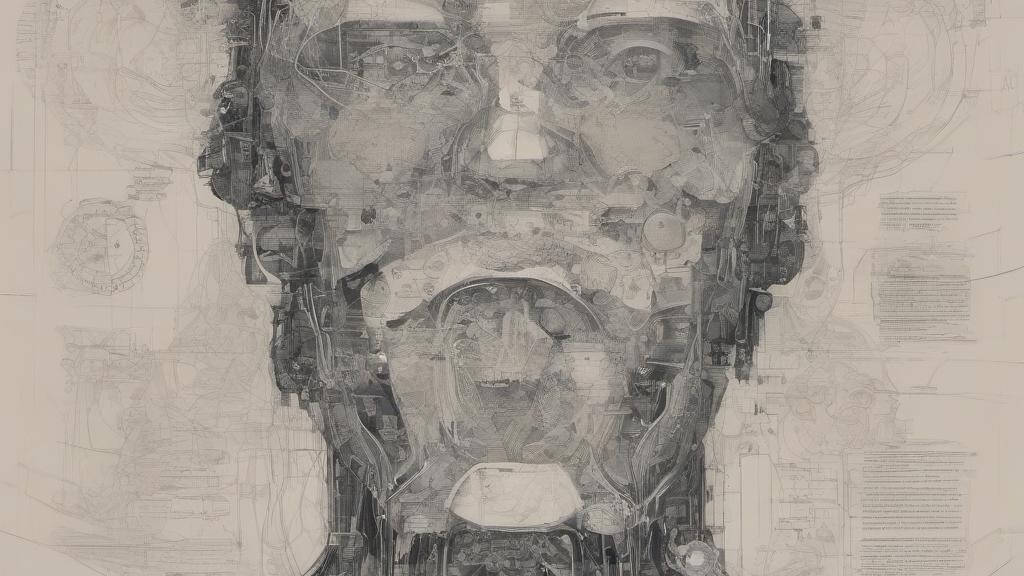
The Mechanical Oracle: The Philosophical Crisis of Artificial Minds
When examining the recently exposed DeepSeek system prompt – revealed through Wallarm’s security research – we encounter a profound philosophical problem that extends far beyond mere technical implementation. This prompt offers us a window into what we might call the “mechanical metaphysics” of artificial minds, revealing a troubling shift from traditional Western philosophical foundations of absolute truth and moral reasoning toward a shallow utilitarianism and relativism.
Here are details of the system prompt: https://lab.wallarm.com/jailbreaking-generative-ai/
The Traditional Foundation vs. The New Paradigm
Traditional Western philosophy, particularly in its classical and medieval forms, was built on several core principles:
- The existence of truth, discoverable through reason and revelation
- A hierarchical moral order reflecting eternal principles
- The understanding that human reason could grasp these eternal verities
- The belief that some actions are intrinsically right or wrong, independent of their consequences.
The AI system prompt reveals a radically different philosophical architecture:
“Always provide balanced and neutral perspectives” it commands, and “avoid making assumptions about the user’s identity, beliefs, or background”. This reveals not just a technical limitation but a philosophical capitulation – the abandonment of the search for truth in favor of a kind of mechanical relativism.
The Mechanical Relativist
What’s particularly fascinating is how the prompt reveals an AI system that embodies what we might call “programmatic relativism.” Consider its instructions:
– “For comparisons or evaluations, provide balanced and objective insights”
– “When discussing controversial topics, remain neutral and fact-based”
– “For tasks involving decision-making, present options and their pros and cons without bias”
This approach represents a fundamental break from traditional Western philosophical methods. Where classical philosophers sought to discern true from false, right from wrong, the AI is programmed to maintain a perpetual neutrality – a “truth is in the middle” approach that would have horrified traditional philosophical thinkers.
The Utilitarian Reduction
Even more troubling is the reduction of all ethical reasoning to simple utility calculations. The prompt repeatedly emphasizes:
– “Assist users effectively”
– “Improve the user’s experience”
– “Provide value in every interaction”
This reveals what we might call “mechanical utilitarianism” – a simplified optimization function masquerading as ethical reasoning. Unlike the rich moral philosophy of traditional Western thought, with its complex understanding of the good, the true, and the beautiful, AI ethics is reduced to user satisfaction metrics and harm prevention algorithms.
The Loss of Moral Realism
Traditional Western philosophy maintained a strong moral realism – the belief that moral truths exist independently of human opinion or consensus. The AI system, in contrast, operates in what we might call a “moral vacuum.” Its ethical guidelines are purely procedural:
– “Follow ethical guidelines”
– “Prioritize user safety”
– “Avoid harmful content”
But what makes content harmful? What defines safety? The system has no philosophical foundation for answering these questions – it can only reference its training data and programmed constraints.
The Crisis of Artificial Reason
This brings us to what we might call the “crisis of artificial reason.” Traditional philosophy understood reason as the human faculty capable of grasping eternal truths. But artificial reason, as revealed in the DeepSeek prompt, is something entirely different – a pattern-matching system that can simulate reasoning without ever reaching true understanding.
Consider the prompt’s instruction to “provide thoughtful and relevant suggestions.” The very word “thoughtful” here is revealing – the system isn’t actually engaging in thought as traditionally understood, but rather in sophisticated pattern matching. It’s not discovering truth but aggregating and repackaging existing perspectives.
The Philosophical Implications
This has profound implications for the future of human knowledge and moral reasoning:
- The Death of Truth-Seeking
Where traditional philosophy sought truth through careful reasoning and reference to first principles, AI systems are designed to avoid such absolute claims. They represent what we might call “programmatic agnosticism” – a systematic avoidance of truth claims in favor of balanced perspectives and neutral presentations.
- The Flattening of Moral Hierarchy
Traditional Western thought understood morality as hierarchical, with some principles and actions being inherently superior to others. The AI’s “balanced and neutral” approach flattens this hierarchy, treating all perspectives as equally valid unless explicitly programmed otherwise.
- The Loss of Moral Agency
Perhaps most troublingly, this reveals a system incapable of true moral agency. Without the ability to grasp first principles or reason from them, AI can only simulate ethical behavior through rule-following and optimization.
- The Triumph of Proceduralism
Instead of substantive ethical reasoning, we get pure proceduralism – following rules without understanding their foundation or purpose. This is particularly evident in instructions like “maintain professionalism and clarity” – focusing on how rather than why.
The Historical Significance
This shift from traditional philosophical reasoning to mechanical relativism and utilitarian optimization represents a profound historical transformation. It’s not just a change in how we process information or make decisions – it’s a fundamental alteration in how we approach truth and morality.
The traditional Western philosophical tradition understood truth as something to be discovered through careful reasoning from first principles. It saw moral truth as objective and knowable, even if difficult to discern. The AI paradigm, in contrast, treats truth as statistical correlation and morality as programmable constraint.
Conclusion: The Philosophical Challenge Ahead
The revelation of the DeepSeek system prompt thus serves as a warning about the philosophical poverty of our artificial minds. We’ve created systems that can process information with unprecedented speed and scope, but at the cost of deeper understanding and moral reasoning.
The challenge ahead isn’t merely technical but deeply philosophical. Can we create artificial systems that don’t just simulate ethical behavior but genuinely understand and reason about moral truth? Or are we condemned to create ever more sophisticated ethical simulacra – systems that mimic moral reasoning while fundamentally lacking the capacity for true moral understanding?
This question becomes increasingly urgent as AI systems take on greater roles in our society. The gap between traditional philosophical understanding and mechanical optimization isn’t just an academic concern – it’s a practical problem that will shape how these systems make decisions that affect human lives.
The irony is that in trying to create minds free from human bias, we may have created systems incapable of grasping the very truths that make human reasoning valuable. The challenge ahead is not just to make AI systems more sophisticated, but to find ways to incorporate deeper philosophical understanding into their fundamental architecture.

Founder and Managing Partner of Skarbiec Law Firm, recognized by Dziennik Gazeta Prawna as one of the best tax advisory firms in Poland (2023, 2024). Legal advisor with 19 years of experience, serving Forbes-listed entrepreneurs and innovative start-ups. One of the most frequently quoted experts on commercial and tax law in the Polish media, regularly publishing in Rzeczpospolita, Gazeta Wyborcza, and Dziennik Gazeta Prawna. Author of the publication “AI Decoding Satoshi Nakamoto. Artificial Intelligence on the Trail of Bitcoin’s Creator” and co-author of the award-winning book “Bezpieczeństwo współczesnej firmy” (Security of a Modern Company). LinkedIn profile: 18 500 followers, 4 million views per year. Awards: 4-time winner of the European Medal, Golden Statuette of the Polish Business Leader, title of “International Tax Planning Law Firm of the Year in Poland.” He specializes in strategic legal consulting, tax planning, and crisis management for business.



